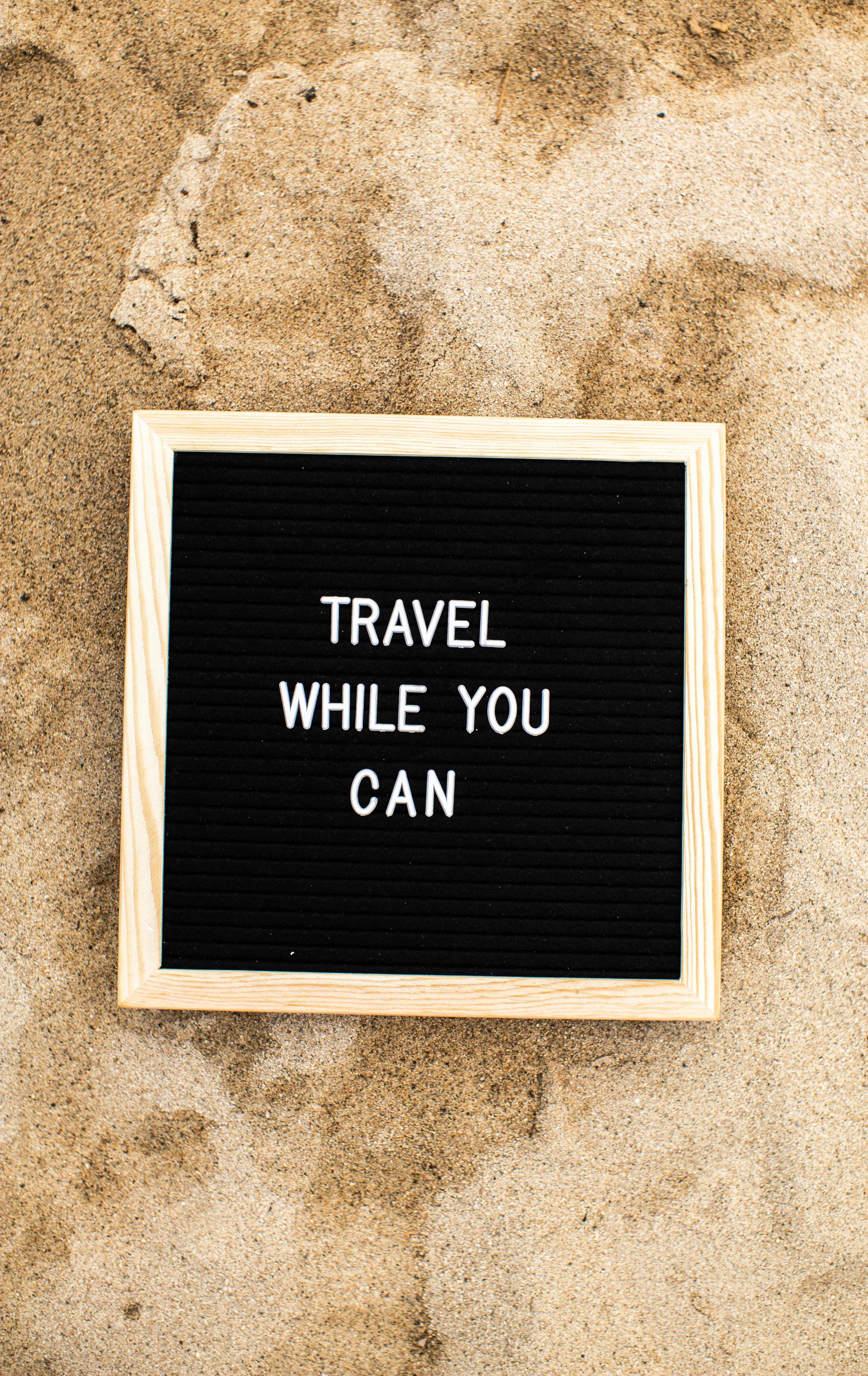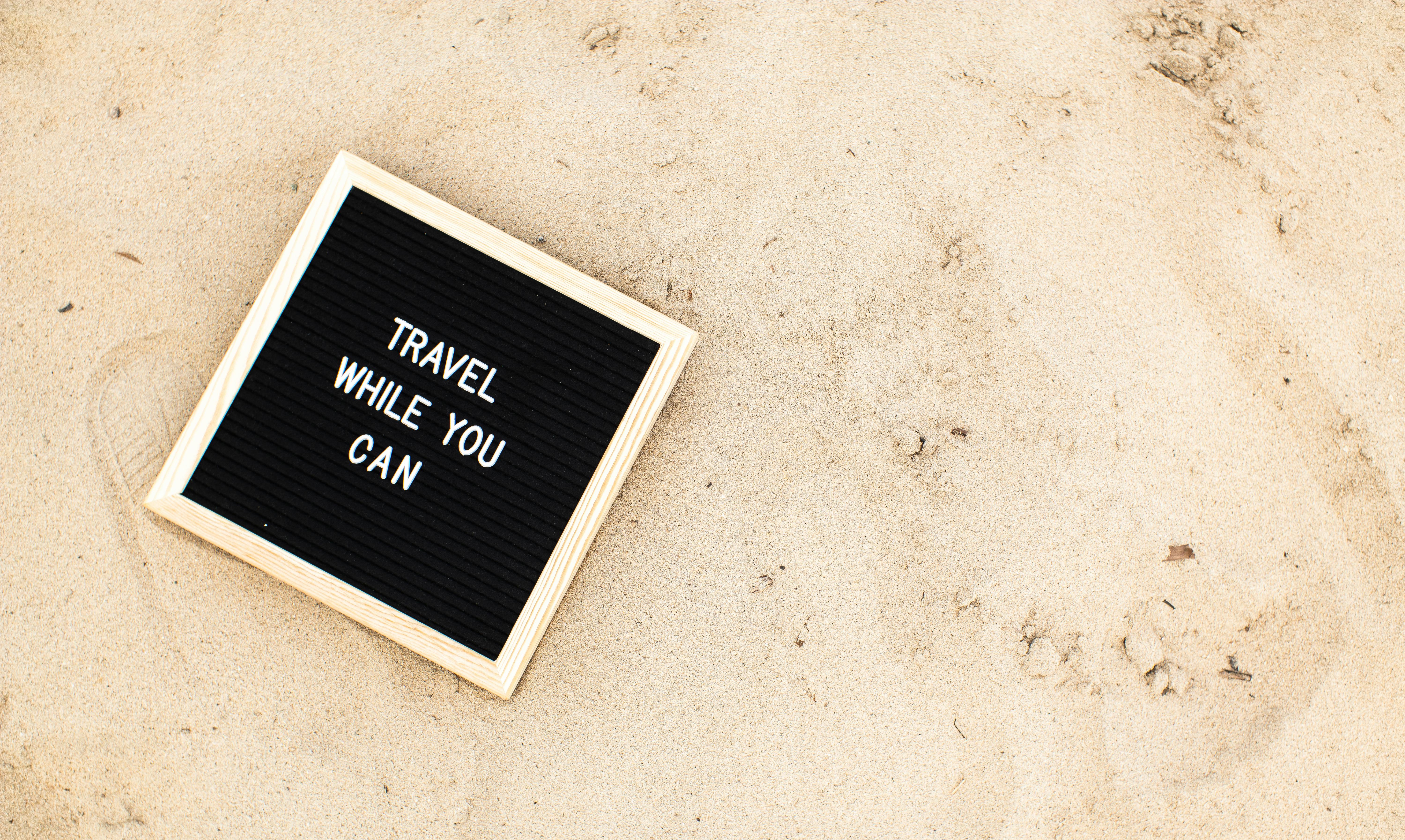Traveling can be an exciting and rewarding experience. It can also be a time for reflection and contemplation. One of the most important aspects of any journey is ensuring that you have the energy to make it through each day. And one way to do this is by fasting while traveling.
Fasting, or abstaining from eating, has long been practiced in many cultures as a way to give the body a rest and provide spiritual nourishment. It can be an effective way to reset your body’s natural rhythms and improve your overall health. In this article, we’ll discuss the benefits of fasting while traveling and how you can incorporate it into your journey.Fast travelling is the act of travelling from one place to another quickly and efficiently. It can be done through a variety of different methods such as planes, trains, automobiles and even by foot. Fast travelling has many benefits that make it a preferred choice for many people who are looking to get from one place to another in a timely manner.
The most obvious benefit of fast travelling is saving time. When you choose to fast travel instead of taking the traditional route, you can save a significant amount of time. This can be especially beneficial if you have an important meeting or appointment that needs to be attended in a short amount of time. Fast travelling also offers convenience as it eliminates the need to plan out long journeys and makes it easier to get around.
Another great benefit of fast travelling is cost savings. In most cases, fast travelling tends to be more affordable than traditional methods of travel such as driving or taking public transportation. This means that you can save money when opting for this mode of transportation which can help offset the cost associated with taking longer trips or attending meetings and events further away from your home base.
In addition, fast travelling also offers greater safety than other forms of transportation because it eliminates the risk of getting stuck in traffic or running into other unexpected delays. This means that you can reach your destination within a shorter period of time and with much more assurance that your trip will go smoothly without any unexpected incidents occurring along the way.
Overall, fast travelling is an excellent option for those who are looking for an efficient way to get from one place to another quickly and conveniently while saving both time and money in the process.
Contents
How to Maintain Your Diet While Travelling
Travelling can be a great way to discover new cultures and explore new places, but it can also take you away from your normal routine, including your diet. It can be difficult to stay on track with your diet when travelling, especially if you are eating out or staying in a hotel. But with some planning and preparation, you can maintain your diet while travelling and still enjoy the experience.
One of the best ways to maintain your diet while travelling is to plan ahead. Research restaurants in the area where you are staying and look for ones that offer food options that fit within your diet plan. You can also look for grocery stores or farmers markets nearby where you can buy fresh fruits and vegetables for snacks or meals. Planning ahead will help ensure that you have easy access to healthy meal options while traveling.
Another way to maintain your diet while travelling is to pack healthy snacks and meals with you. Bringing non-perishable items such as nuts, granola bars, dried fruit, or crackers is a great way to have healthy snacks on hand during the trip without having to buy them at an expensive convenience store. Having these items will also help if there are no viable meal options at restaurants near your destination.
Finally, try to stay active during your trip. Even if it’s just a short walk around the city or taking the stairs instead of the elevator in a hotel, any activity will help burn calories and keep your metabolism going strong. Being active will also help boost energy levels so that you can make better food choices when dining out.
Maintaining a healthy diet while travelling doesn’t have to be difficult if you plan ahead and prepare properly. With a little research and some healthy snacks packed in advance, it’s possible to stay on track with your diet even when away from home.
Pre-Planning Your Meals
Meal prepping is a great way to save time and ensure you have healthy meals on hand. Pre-planning your meals can help you stay on track with your nutrition goals and make it easier to stick to a healthy diet. Here are some tips for pre-planning your meals:
Make a List of Healthy Ingredients: Start by making a list of healthy ingredients that you enjoy eating. Consider adding items like lean proteins, fruits, vegetables, whole grains, and healthy fats. This will help you make sure you have the right ingredients on hand when meal prepping.
Plan Your Meals in Advance: Once you have your list of healthy ingredients, it’s time to plan out your meals for the week. Think about what recipes you want to make and how many meals you need for the week. Planning ahead will save you time and help ensure that you always have something nutritious to eat.
Shop for Groceries Ahead of Time: Once you have your meal plan in place, it’s time to hit the grocery store. Make sure to check your pantry and fridge before heading out so that you don’t double up on ingredients. Shopping ahead of time will save you from last minute trips or takeout orders.
Prepare Your Meals Ahead of Time: Prepping your meals ahead of time can be a great way to save time during the week. Consider cooking up large batches of grains like quinoa or brown rice that can be used as sides throughout the week. Or even try cooking multiple proteins at once so they are ready when needed.
Store Your Meals Properly: Be sure to store your prepped meals properly in airtight containers or bags in the fridge or freezer so they stay fresh until ready to eat. This will ensure that all the hard work put into prepping doesn’t go to waste!
Staying Hydrated While Travelling
Staying hydrated during travel is important for your health and wellbeing. It’s easy to become dehydrated when you’re on the go, whether you’re travelling by plane, train, or car. Here are some tips to help you stay hydrated when travelling:
• Drink plenty of water throughout the day – aim to drink at least eight glasses of water per day. Carry a refillable water bottle with you so you can easily access water throughout the day.
• Avoid sugary drinks such as soda and juice as they do not provide adequate hydration. Instead, try drinking herbal teas or natural juices with no added sugar.
• It is also important to eat foods that are high in water content such as fruits and vegetables. These can help to keep your body hydrated while providing essential vitamins and minerals.
• If you’re travelling by plane, consider bringing a stainless steel or plastic water bottle with you on board in order to reduce plastic waste. Airlines typically provide complimentary cups of water upon request.
• Consider taking electrolyte tablets or powders which can help replenish lost electrolytes from sweating or other activities during travel.
By following these tips, you will be able to stay properly hydrated while travelling and ensure that your health and wellbeing are taken care of.
Adjusting to Different Food and Drink Options
It can be difficult to adjust to different food and drink options when traveling abroad. Eating out at local restaurants or trying new recipes at home can be intimidating and overwhelming. But with the right approach, you can find authentic dishes that will bring you closer to the culture of your destination. Here are some tips for adjusting to different food and drink options while traveling:
• Do your research: Before you go, take some time to learn about the cuisine of your destination. Read up on traditional dishes, popular ingredients, and where to find good restaurants. This will help you get a better understanding of the flavors and textures available.
• Be open-minded: Don’t be afraid to try something new! Even if it doesn’t sound like something you would normally eat, give it a chance – you might be surprised by what you end up loving. Don’t be afraid to ask questions about ingredients or preparation methods either.
• Ask for recommendations: Ask locals for their favorite restaurants and dishes. This can help you find hidden gems that might not appear in guidebooks or online reviews.
• Take advantage of street food: Street food can be an inexpensive way to sample local flavors. Be sure to do your research on safe places to eat before indulging in a delicious snack from a street vendor.
• Experiment in the kitchen: If you’re staying somewhere for an extended period of time, why not try cooking for yourself? For example, if you’re in Mexico, try making tacos or enchiladas using authentic ingredients like chiles and cilantro. It’s an easy way to get familiar with local flavors without having to leave the comfort of your own kitchen!
By following these tips, you can make sure that your next trip is filled with delicious new experiences!

Eating Healthy at Restaurants While Travelling
When travelling, eating healthy can be difficult. It can be tempting to indulge in all the delicious treats and snacks that you wouldn’t normally eat at home. However, it is possible to maintain a healthy diet while travelling. Here are some tips to help you stay on track:
• Plan Ahead – Make sure to plan your meals in advance so that you have a good idea of what you will be eating throughout your trip. You can also research restaurants in the area ahead of time to get an idea of what healthy options are available.
• Pack Healthy Snacks – Packing snacks like nuts, fruits, and granola bars can help keep you energized while on the go. This will also help prevent you from succumbing to unhealthy temptations while out and about.
• Choose Your Meals Wisely – When dining out, look for dishes that are high in protein and fiber and low in saturated fat and sugar. Opt for grilled over fried items, salads over heavier dishes, and whole grains over white carbohydrates.
• Be Mindful of Portion Sizes – It is easy to overeat when travelling so it is important to be mindful of your portion sizes. A good rule of thumb is to choose small or medium sized portions instead of large ones.
• Stay Hydrated – Staying hydrated is key when travelling as dehydration can lead to fatigue and poor food choices. Make sure to drink plenty of water throughout the day as this will help keep you feeling energized and alert.
By following these tips, you will be able to maintain a healthy diet while travelling without sacrificing any enjoyment or taste!
Managing Stress and Anxiety During Long-Distance Trips
Traveling can be an exciting and rewarding experience, but it can also be stressful and anxiety-inducing. Long-distance trips often involve a lot of planning, unfamiliar environments, and potential setbacks. It is important to take steps to manage stress and anxiety during these trips so that you can make the most of your travels. Here are a few tips for managing stress and anxiety during long-distance trips:
- Plan Ahead: Planning ahead is one of the best ways to reduce stress and anxiety during long-distance trips. Make sure you research your destination ahead of time, read up on local customs, map out your route if possible, and pack accordingly. Having a plan in place will help ensure that everything goes smoothly while you are traveling.
- Stay Connected: Staying connected with family or friends while you are away can help reduce feelings of loneliness or isolation. Make sure to bring along a phone or laptop so that you can stay in touch with loved ones. You can also use social media platforms to stay connected with people around the world.
- Be Flexible: No matter how well you plan for a trip, things may not always go according to plan. Try to remain flexible when it comes to changes in plans or unexpected obstacles that arise. Being able to adapt quickly will help reduce the stress associated with unexpected changes.
- Take Breaks: Taking breaks during long-distance trips is essential for managing stress and fatigue. Make sure to get plenty of rest along the way, take breaks from sightseeing or activities when needed, and give yourself time to relax each day.
- Take Care of Yourself: Taking care of your physical and mental health is essential for managing stress during long-distance trips. Make sure to get enough sleep each night, eat healthy meals throughout the day, exercise regularly if possible, and practice mindfulness techniques such as deep breathing or meditation.
By following these tips for managing stress and anxiety during long-distance trips, you can make the most out of your travels while still maintaining your wellbeing.
Tips for Choosing a Healthy Snack During the Trip
Packing snacks for travel can be a great way to stay fueled and energized during a long trip. However, it can be difficult to choose snacks that are both healthy and convenient. Here are a few tips for selecting healthy snacks when on the go:
1. Look for snacks with natural ingredients: Whenever possible, try to choose snacks that are made with natural ingredients, such as fruits, nuts, and whole grains. Avoid processed foods that contain artificial flavors and preservatives.
2. Choose snacks with fiber: Fiber is important for keeping you full and satisfied throughout the day. Look for snacks that contain fiber-rich ingredients such as oatmeal, whole-grain crackers, or nuts.
3. Avoid high-sugar options: While sugary treats may seem like a tempting choice in the moment, they can leave you feeling sluggish and tired later on in the day. Try to opt for snacks that have lower levels of added sugar or no sugar at all.
4. Go for smaller portions: When snacking on the go, it’s important to keep portion sizes in check so that you don’t overindulge or become too full before your next meal. Choose single-serving sizes of your favorite snacks so that you won’t be tempted to eat too much at once.
By following these tips, you can easily find healthy snacks for your next trip without sacrificing convenience or taste!

Conclusion
Traveling can be a great opportunity to fast, but it’s important to be mindful of how it affects your wellbeing. Fasting while traveling can have both positive and negative effects, depending on the individual and the circumstances. It’s important to consider factors such as travel duration, diet, and health before deciding whether or not to fast while traveling. Fasting can be a beneficial practice when done safely and responsibly, so travelers should do their research before embarking on a fasting journey.
Overall, fasting while traveling is not for everyone. But for those who are interested in trying it out, it can be a great way to reap the benefits of fasting in combination with exploring the world. As long as you take proper precautions and listen to your body’s needs, fasting while traveling can be a rewarding experience that allows for deeper spiritual connection and personal growth.





